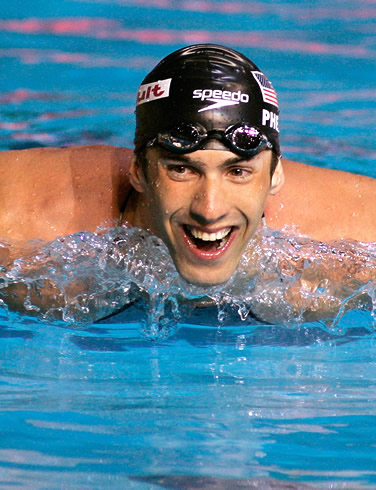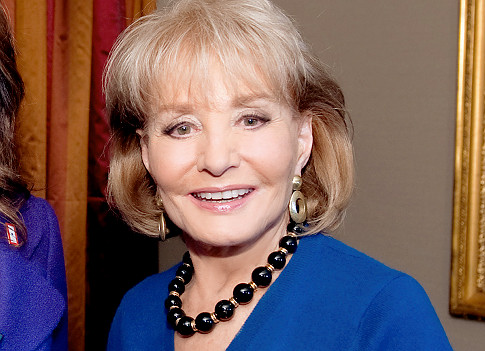Celebrities with Lisps
As a parent, one of the hardest things is to see your child struggle. We wish we could protect them from everything, including being bullied or feeling low self-esteem because of a difference. As a child with a speech disorder grows older and begins to attend playgroups and school, other children might call attention to the differences in his speech and language patterns. Having positive role models who also struggled with these issues might help your child overcome this. Numerous celebrities have been diagnosed with speech disorders, including lisps. Discuss these stories with your child and remind him that he can accomplish anything he puts his mind to.
Michael Phelps
Michael Phelps is the man of the moment. This champion Olympic swimmer has won an incredible 16 Olympic medals – 14 of them gold. Right now, he is ready to do battle for more Olympic golds in this year’s London games. He’ll be facing some pretty steep competition from his teammate, rising star Ryan Lochte. But Michael Phelps should be up for the challenge; he has already overcome some huge obstacles in his personal life.
When Michael Phelps was nine years old, he was diagnosed with attention deficit disorder (ADD). Yet these days, he is one of the most highly focused athletes out there. Michael managed his symptoms by leaping into his swimming routine. Swimming also helped him cope with being bullied at school because he spoke with a lisp. When Michael Phelps got excited about something, he talked too fast and would drop his “L’s” and add extra “S’s.” If he tried to insist that he didn’t have a lisp, Michael usually mispronounced the word “lisp.”
One of the swimmers in particular used to egg Michael on about his lisp. One day, it made Michael so mad that he did poorly in a swim meet. At the next meet, Michael was all the more determined to prove his detractors wrong. Judging by his medals, he’s been pretty successful at that. Just one look at him in a competitive swim meet, and you’ll know that he’s something special. The guy seems like he was born for the sole purpose of swimming. If he were in a race underwater with sharks, Phelps would probably win.
Barbara Walters
Barbara Walters has been one of the most recognizable faces on American TV for decades. She’s scored interviews with countless celebrities and notables, from Anwar al-Sadat to Katherine Hepburn. She also set the record in 1999 for conducting an interview with the most TV viewers (74 million, for her interview with Monica Lewinsky). Just about everybody in the U.S. and beyond who has turned on a TV set in the last few decades can recognize her voice. And yet, Barbara Walters is often ridiculed for her lisp.
When Walters first landed a gig on “Today,” she signed up for speech therapy lessons. Unfortunately, they didn’t go so well for her. She became so preoccupied about the placement of her tongue while she spoke that it interfered with her ability to speak. Barbara Walters quit the speech therapy lessons and decided to accept her speech patterns. However, if you observe her closely as she speaks, you’ll notice that she seems to have overcome some of her articulation issues anyway. She appears to be very careful about the way she moves her mouth and tongue as she speaks, and her lisp is barely noticeable these days.
If your child has a lisp, talk to his speech-language pathologist (SLP) about the use of Speech Buddies. They are simple tools that provide tactile feedback to encourage proper articulation. Many parents have noticed great progress when they use Speech Buddies with their children for just a few minutes a day.






Thanks for a encouraging blog on lisps. I know there are two kinds of lisps, a fronal lisp where the air escapes from the front of the mouth when someone is making an interdental sound. This lisp is the most common and a lateral lisp where the tongue hits the alveolar ridge of the mouth resulting in the air escaping from the sides of the mouth. This lisp is not as common. Funny you talk about Michael Phelps because I heard him being interviewed after one of his races he unfortunately lost the other day I did notice a slight lisp but just assumed it was his heavy breathing. It was nice to hear he turned his fury into success. Like you mentioned with Barbar Walters, I know there is a lot of speech therapy focusing on controlling the tongue movement in order to produce certian sounds but like her it isn’t for everyone. Good for her for taking control of her lisp on her own terms. Lisps and other voice disorders can be socially debilitating and it’s nice to see that there is tons of support, therapy, and resources out there for all. Thanks again for a sweet blog!